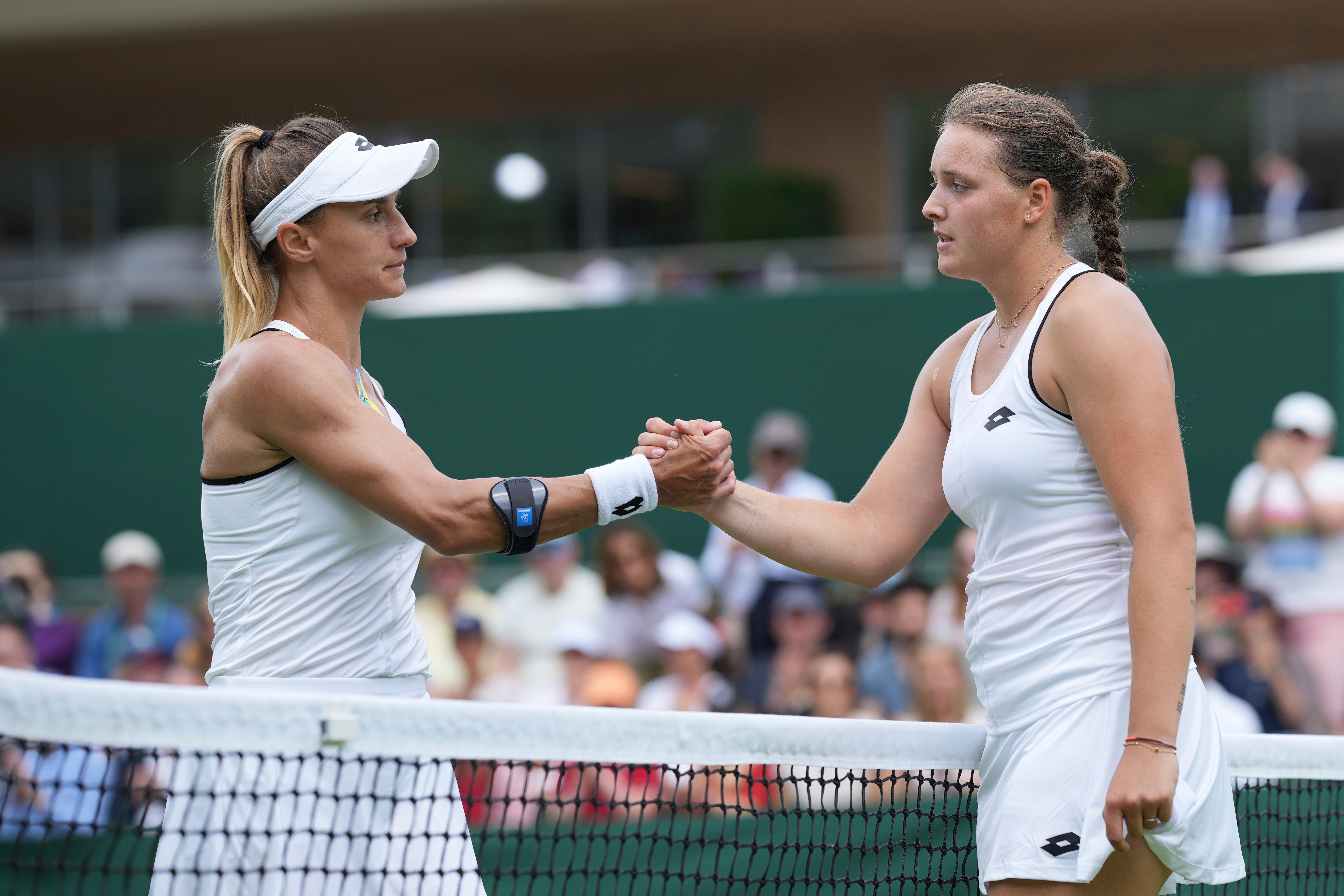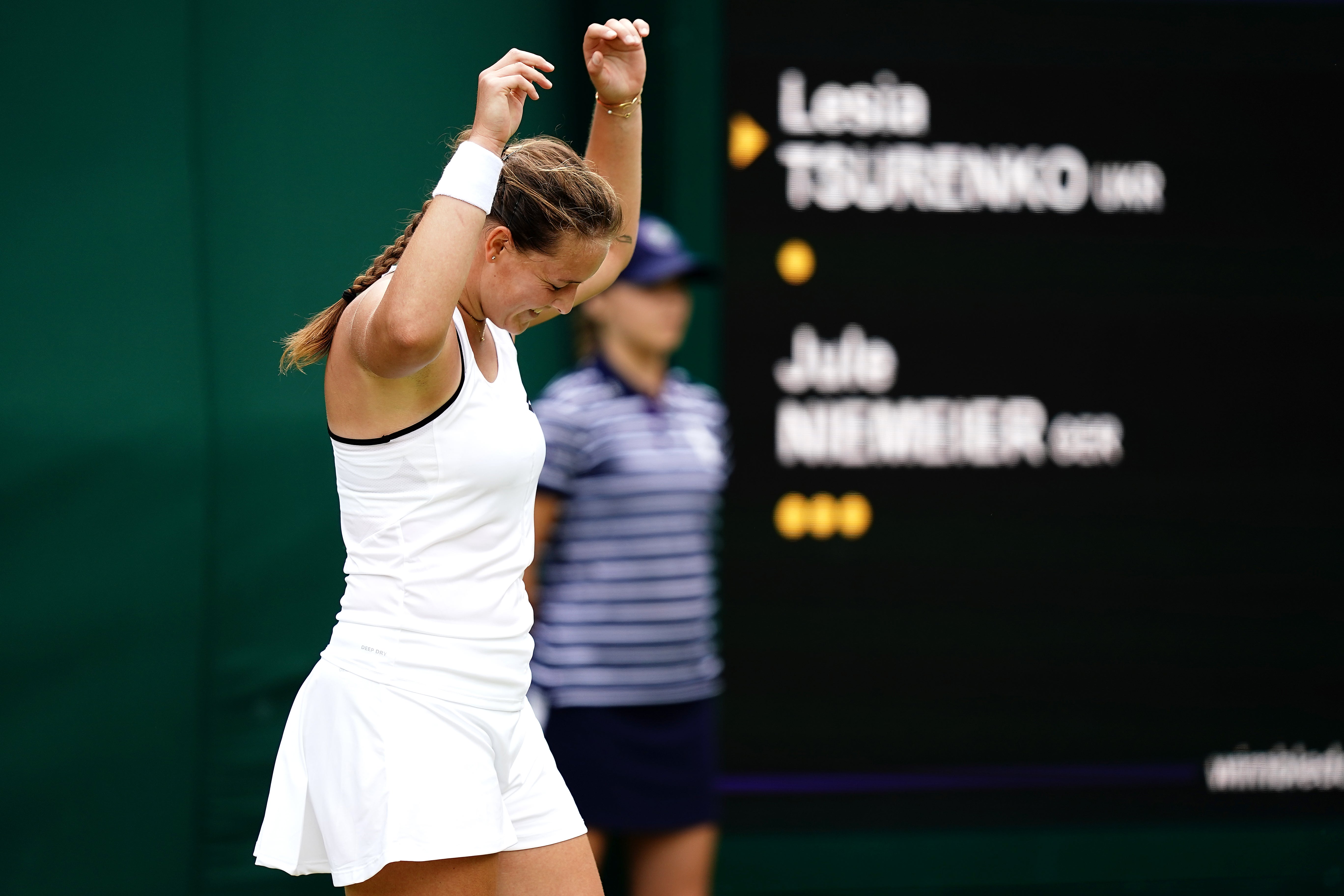Lesia Tsurenko struggled to keep the war in Ukraine out of her mind at Wimbledon
The Ukraine number five struggled during her last-32 tie due to events taking place in her home country.

Your support helps us to tell the story
From reproductive rights to climate change to Big Tech, The Independent is on the ground when the story is developing. Whether it's investigating the financials of Elon Musk's pro-Trump PAC or producing our latest documentary, 'The A Word', which shines a light on the American women fighting for reproductive rights, we know how important it is to parse out the facts from the messaging.
At such a critical moment in US history, we need reporters on the ground. Your donation allows us to keep sending journalists to speak to both sides of the story.
The Independent is trusted by Americans across the entire political spectrum. And unlike many other quality news outlets, we choose not to lock Americans out of our reporting and analysis with paywalls. We believe quality journalism should be available to everyone, paid for by those who can afford it.
Your support makes all the difference.Ukraine’s Lesia Tsurenko bowed out of Wimbledon with a third-round defeat to Jule Niemeier and admitted it was a day she could not separate tennis and the war in her country.
The 33-year-old was broken 11 times but battled on before she exited SW19 6-4 3-6 6-3.
World number 101 Tsurenko again wore a yellow and blue ribbon in support of Ukraine – which was invaded by Russia in February – and had been the last player from the country left in the women’s singles at the All England Club.
After she exited the Championships on day five, she said: “I honestly don’t know what happened to me today.
“I did not feel well the whole match. I was not able to serve. I don’t know. I’m just very, very nervous today since I woke up. (A) few days like that happened to me in the last few months.
“I think it’s just one of those days when your body and your mind are not your friends. This is how I felt today, like I cannot control what my body is doing.
“That’s why I had so many mistakes. I was not able to win my serve, I was not able to do the first serve, so I did not have a rhythm on any of the shots. It’s strange but it happens sometimes unfortunately. I think it’s just mental overload.

“A few days like that happened to me feeling nervous with no reason. Let’s say, I mean, no reason, no real reason. I know that there is a war at home, and I think it just makes me too nervous sometimes. It’s definitely affecting, but probably I was just not able to separate today.”
Tsurenko’s run to the third round, which equalled her previous best showing at Wimbledon in 2017, has earned the Ukrainian a £120,000 payday and 10 per cent will be sent back home to help with the war effort.
Now the initial plan will be to return to her new base of Italy after she recently found an apartment there close to the Piatti academy where compatriot Marta Kostyuk is also based.
But she will struggle to switch off despite being reunited with her sister, who has moved in with her while the rest of the family, including her mum, remain in Ukraine while the war continues.
“I don’t relax. That’s true. I don’t see a way to do it now. I can go for massage, but probably I will think about what’s going on at home,” Tsurenko said.
“Sometimes when I train in Italy, it’s a very nice place and it’s a small city, a small town by the sea, sometimes when you are just eating great food and having amazing Italian espresso and you see that you are surrounded by beautiful nature, for some moments you forget and you’re like, you’re relaxed and you think ‘oh the life is good,’ but it’s just seconds.
“It’s very tough for me to explain to you – and I hope none of the people will ever feel this – but it’s just like some part of me is always so tight and I think it will be a big release when the war will finish, but not before.”
Join our commenting forum
Join thought-provoking conversations, follow other Independent readers and see their replies
Comments